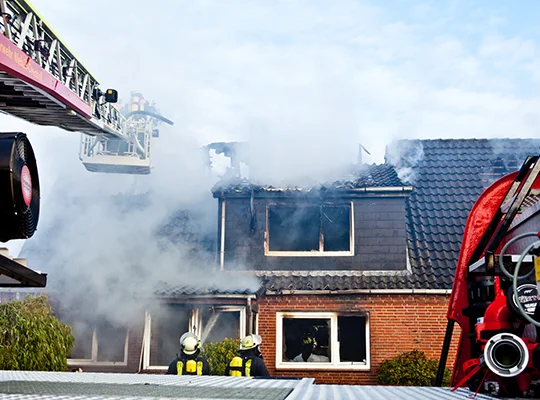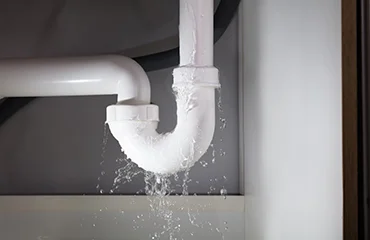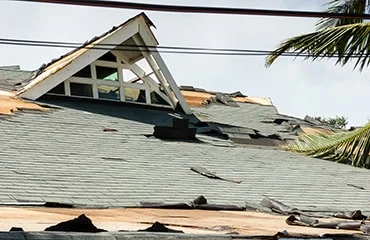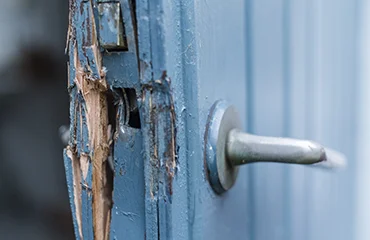Gulf Coast Public Adjusters handle both large and small fire and smoke damage claims. Even small kitchen fires or smoke damage can have hidden damages. Fires are one of the most devastating occurrences that can happen to a home or business. The fire affects the homeowner or business owner and their family (not just the dwelling). Fires can be extremely tragic especially if there is a loss of life such as a family member or pet. The loss of photographs and memorabilia of loved ones is heartbreaking, as well. The fire may leave behind smells and other side effects that are not only harmful to surfaces but to your health as well. Evidence of smoke damage can appear instantly, while further indications may only manifest hours or days after the fire.
Fire and Smoke Damage
Fire and Smoke Damage

Gasses are cloudy, fog-like beads that can be toxic if inhaled
or absorbed. Hopefully, if you ever call on Gulf Coast Public
Adjusters to assist you in with a fire loss you do so without
any loss of life (or health issues).
The intensity of destruction of the fire will differ depending
on where a fire originated. Due to the essential work of the
fire department to extinguish the fire, extensive water damage
will also accompany the fire and smoke damage. The fire
department may have to break through walls to make sure there
are no hidden ambers. Smoke damage is usually visually evident
after a fire. Furniture and belongings may be charred, and there
is ash and soot on the floor. A large room will typically have
much more smoke damage than a smaller enclosed space.
Additionally, certain parts of a room such as ceilings, corners,
walls, windows, and appliances will all be impacted by the fire.
After a fire, the flooring and walls will become yellow, which
is not revealed instantly. Surfaces will discolor and warp.
Signs of rust and corrosion may appear on metal hardware hours
after a fire. Porous stone countertops, tiles, or other surfaces
such as marble, granite or travertine often become permanently
stained from the acidic deposit obtained in soot. The residue
will also permanently tarnish metals.
Upholstered furniture may not show signs of fire damage but will
certainly have a permanent smoky odor. Soot can consist of
minuscule fragments of carbon in the air. Eradicating the smoke
residue, or soot is necessary to reduce the odor of a fire.
Several components make up smoke which impacts the smell that
remains permanently destroying furniture. The toxic particles
penetrate surfaces and fabrics. Carbon monoxide (CO), although
odorless, is the most common toxic gas resulting from a fire.
When household products such as vinyl, plastics and other
chemical solvents containing chlorine materials are burned
Phosgene is created. Hydrogen cyanide is a consequence of the
combustion and burning of plastics, synthetics, clothing,
carpets, and insulation. Smoke becomes perpetually trapped in
clothing, carpets, drapes, and upholstered furniture. Having
those items cleaned and deodorized by a professional fire clean
up service may be a waste of time; they may retain the smoky
smell permanently. The location of the odor can be hard to
identify. Soot will not only be located on the surface of your
furniture, but soot will also saturate the pores of the
furniture. Usually, the furniture has simply been damaged beyond
repair.
Smoke damage can engulf walls and ceilings causing damage to the
dwelling structure/framing, wall studs, insulation, air ducts
and the ventilation system. Toxic particles become entrapped in
the HVAC system, initiating respiratory issues. The heat
produced by the fire will destroy the dwelling's electrical
system. Electrical apparatuses such as wiring, cords, outlets,
switches, fuses, and breaker boxes may be damaged by the intense
heat. Appliances may also display indications of corrosion,
suffer short circuits, malfunction, or fail completely.
Due to the extensive damages and destruction of a fire the
entire dwelling and the contents will be affected and will most
likely need to be replaced. Gulf Coast Public Adjusters will
ensure your insurance company pays you to rebuild your home and
replaces your contents.
Fire Prevention Tips
-
Cooking
• Cooking and meals bring family and friends together, creating everlasting bonds and memories. Cooking provides an outlet for creativity. But cooking fires are the number one cause of fires in a home, as well as injuries.
• The leading cause of kitchen fires is unattended cooking on the stove or in the microwave. Stay in the kitchen when you are cooking. Turn off the stove when you leave the kitchen.
• Never leave the home while you are simmering, baking, or roasting food. Timers are recommended to remind you that you are cooking.
• Keep items able to catch fire such as towels, oven mitts, wooden utensils, food packaging, and curtains away from your stove and oven. Should a fire start in the oven, turn off the oven and keep the door closed. On the stovetop, smother the flames with the lid and turn off the burner.
• Purchase a microwave oven listed by a qualified testing laboratory. Plug the microwave directly into the wall (do not use an extension cord). Only use approved containers in the microwave; never use any foil or metals in the microwave oven. Never heat a baby bottle in the microwave. Microwaves heat unevenly and the hot steam can cause severe burns. If a microwave fire should start, unplug, or power off the unit and keep the door closed.
• Always supervise children when cooking and keep children at least three (3) feet away from the oven, stove, and microwave. -
Candles
Candles are pretty and provide ambiance, but candles are a leading cause of home fires and deaths. Candle flames can easily ignite items that can burn. December is the peak month for candle fires. More than one third of candle fires start in the bedroom. Three out of all candle fires begin when items are too close to a candle.
• Never leave a child unattended with a burning candle.
• Use sturdy candles holders on an uncluttered surface.
• Keep hair and loose clothing away from flames.
• Never use candles if oxygen is utilized in the home or business.
• If there is a power outage, use flashlights instead of candles.
• Extinguish candles if you exit a room or go to sleep.
-
Heating
A majority of home heating fires occur during the winter months of December, January, and February.
• Never use your oven to heat your home.
• Keep items that can burn at least three (3) feet from any heating equipment such as furnace, fireplace, wood stove or space heaters.
• Clean and inspect heating equipment and chimneys on an annual basis, if not more.
• Portable heaters must be turned off when leaving the room or going to bed.
• Ensure your fireplace has a sturdy screen to prevent ambers or sparks from flying into the rooms. Ashes should be could before placing in a metal container.
• Make sure all heating equipment is up to the latest safety codes and installed by a qualified professional.
-
Electrical
Electricity makes our lives comfortable. Flipping a light switch, plugging in a television, working on the computer are all second nature for us.
• Have a qualified licensed electrician perform all installations and maintenance for your home or business.
• Plugged only one heat producing appliance into a receptacle at a time.
• Extension cords or plug strips should not be used on major appliances like refrigerators, dryers, washers, stoves, microwave, etc.
• Ground Fault Circuit Interrupters (GFCIs) should be installed to reduce probability of shock. GFCIs are required by code in most counties to be installed in bathrooms, kitchens, laundry rooms, garages, and outdoor receptacles.
• Arc-Fault Interrupters (AFCIs) turn off electricity when dangerous conditions occur. AFCIs are required in newly constructed buildings. If you have an older building, consider having AFCIs installed.
• Ensure electrical cords do not run across doorways or under carpets. Have a licensed electrician add additional receptacles so you do not have to use extension cords.
• Make sure your light bulb wattage is compatible with all lamps. -
Smoking
The risk of dying in a home structure fire caused by smoking increases with age. One out of four fatal victims of smoking-material fires are not the smoker whose cigarette started the fire.
• Use fire-safe cigarettes.
• Smoke outside.
• Keep cigarettes, matches, lighters and other smoking materials out of reach of children.
• Use a deep, secure ashtray.
• Do not throw away cigarettes outside. Discard cigarettes by dousing them in water or burying them in sand. -
Propane and charcoal grills
Barbeque and grilling are a favorite method of cooking especially in southwest Florida. But placing a grill too close to anything is a fire hazard.
• Propane and charcoal grills should only be used outside.
• Grills should be placed away from any structures such as decks, railings and out from under eaves and overhanging branches.
• Children and pets should remain at least three (3) feet away from grills.
• Keep grills clean.
• Never leave a grill unattended.
• Open your gas grill lid is open before lighting.
• Never use starter fluid, only approved charcoal starter fluid. Keep all fluids out of reach of children.
• Let coals completely cool and extinguish before disposing in a metal container.
Install and test smoke alarms and carbon dioxide alarms at least once a month. If you have any doubts about a small fire in your home or business, just exit the dwelling closing doors behind you to help contain the fire. Call 9-1-1.



